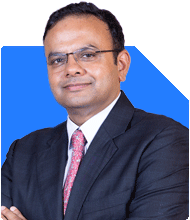Advait Arora | Answer |Ask -Follow
Financial Planner - Answered on Aug 07, 2023
He holds a masters in IT management from the University Of Wollongong, Australia, and an MBA in marketing from Charles Strut University, NewCastle, Australia.
Advait is a firm believer in the power of compounding to help his clients grow their wealth.... more

Sir, I want to invest 5000/- per month, I am continuing investing till date 1) HDFC Large and Mid Cap Fund - Regular Plan - Growth - Good Return 2) HDFC Balanced Advantage Fund - Direct Plan - IDCW - Good Return 3) Mirae Asset Emerging Bluechip Fund - Regular Plan Growth- - Good Return 4) Tata Banking And Financial Services Fund Regular Plan Growth- - Good Return 5) BSG - Tata Banking And Financial Services Fund Regular Plan Growth- - Good Return 6) Quant Active Fund - Regular Plan - Bad Return 7) PGIM India Flexi Cap Fund - Direct Plan - Growth - Bad Return 8) TSGP - Axis Long Term Equity Fund - Regular Growth - Bad Return 9) ICICI Prudential Technology Fund - Direct Plan - Growth - Bad return....Please suggest me whether should I invest in the existing one (Good return) or shall I shift to some news Mutual Funds. PLEASE SUGGEST. Need short term growth. Thanks in advance.
you can have 1 each of large cap MF, mid cap MF, small cap MF and one flexicap if you like
You may like to see similar questions and answers below
Abhishek Dev | Answer |Ask -Follow
Financial Planner - Answered on Aug 16, 2023
Ramalingam Kalirajan |10870 Answers |Ask -Follow
Mutual Funds, Financial Planning Expert - Answered on May 06, 2024
Ramalingam Kalirajan |10870 Answers |Ask -Follow
Mutual Funds, Financial Planning Expert - Answered on May 08, 2024
Milind Vadjikar | Answer |Ask -Follow
Insurance, Stocks, MF, PF Expert - Answered on Mar 25, 2025
Ramalingam Kalirajan |10870 Answers |Ask -Follow
Mutual Funds, Financial Planning Expert - Answered on Jan 02, 2025
Dr Dipankar Dutta |1837 Answers |Ask -Follow
Tech Careers and Skill Development Expert - Answered on Dec 05, 2025
Dr Shyam Jamalabad |108 Answers |Ask -Follow
Dentist - Answered on Dec 05, 2025
Dr Shyam Jamalabad |108 Answers |Ask -Follow
Dentist - Answered on Dec 05, 2025
Dr Shyam Jamalabad |108 Answers |Ask -Follow
Dentist - Answered on Dec 05, 2025
Dr Dipankar Dutta |1837 Answers |Ask -Follow
Tech Careers and Skill Development Expert - Answered on Dec 05, 2025
Ulhas Joshi |280 Answers |Ask -Follow
Mutual Fund Expert - Answered on Dec 05, 2025
Dr Dipankar Dutta |1837 Answers |Ask -Follow
Tech Careers and Skill Development Expert - Answered on Dec 04, 2025
Ravi Mittal |676 Answers |Ask -Follow
Dating, Relationships Expert - Answered on Dec 04, 2025
Anu Krishna |1745 Answers |Ask -Follow
Relationships Expert, Mind Coach - Answered on Dec 04, 2025
Anu Krishna |1745 Answers |Ask -Follow
Relationships Expert, Mind Coach - Answered on Dec 04, 2025































